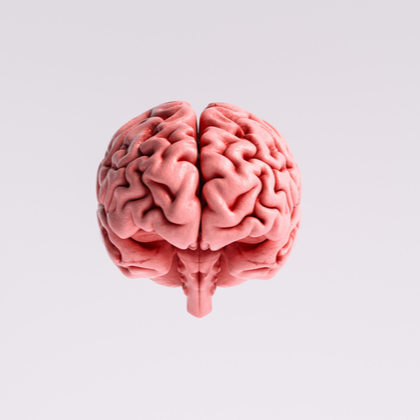
Around the world, vitamin D deficiency is a well-known problem in women who are pregnant. One of the things experts have found is that being deficient in vitamin D may cause changes in a woman’s thyroid gland during pregnancy, making it produce below-normal amounts of important thyroid hormones (underactive thyroid or hypothyroidism) (i).
Vitamin D in pregnancy
We all need vitamin D for a number of reasons – it helps regulate the amount of calcium and phosphate in our bodies, which is important for healthy bones, teeth and muscles. In fact, lacking in vitamin D can cause real problems with your bones, leading to rickets in children (a condition that affects bone development) and osteomalacia, which causes bone pain in adults.
However many of us aren’t getting enough vitamin D, especially during the autumn and winter months. That’s because when your skin is exposed to the sun’s rays it produces its own vitamin D – indeed, sunlight is the main source of vitamin D as it’s difficult to get enough just from food (sources are far from plentiful, including oily fish, eggs, fortified foods and red meat). And we all know that sunlight is in short supply during the autumn and winter in northern countries like the UK.
As a result, in this country, all adults and children older than a year are advised to take a supplement containing 10mcg of vitamin D every day over the autumn/winter period, with those who have little or no sunshine exposure at other times (or who cover their skin a lot) as well as people with dark skin recommended to take vitamin D throughout the year.
How much vitamin D should you take during pregnancy?
The same advice for healthy adults is also relevant during pregnancy and breastfeeding, with a daily 10mcg vitamin D supplement thought to be enough to give your baby enough vitamin D for the first few months of life (v). If you don’t take a vitamin D supplement during pregnancy, it may increase your child’s risk of developing rickets as well as your risk of having a premature birth or your baby being born with a low birth weight
What are the signs you need more vitamin D?
Spotting a vitamin D deficiency in pregnancy can be hard as the symptoms are often very subtle and overlap with common pregnancy symptoms. The most common signs that you need more vitamin D are:
-
General Tiredness
-
Disrupted sleep
-
Ache or soreness in the bones.
-
Feelings of melancholy or depression
-
Loss of hair
-
Muscle fatigue.
-
Loss of appetite
-
Getting ill frequently
-
Dizziness
-
Weight Gain
-
Cuts taking a long time to heal
-
Impaired cognitive functions
-
Heart Problems (such as high blood pressure)
-
Eczema
Vitamin D deficiency in pregnancy
Studies suggest having a vitamin D deficiency during pregnancy may increase your risk of developing a condition called pre-eclampsia as well as high blood pressure (vi).
Pre-eclampsia usually affects pregnant women during the second half of their pregnancy or soon after their baby has been born, with early signs including high blood pressure and excess protein in the urine.
Some women with pre-eclampsia develop symptoms including:
-
Severe headaches
-
Blurred vision
-
Pain below the ribs
-
Vomiting
-
Sudden swelling of the face, hands or feet.
How common is pre-eclampsia?
According to Patient UK, pre-eclampsia affects around one in every 20 pregnancies worldwide (vii).
What is the link between vitamin D and thyroid disease?
A recent study has meanwhile discovered that vitamin D deficiency combined with excess iodine increases a woman’s risk of having thyroid problems during the first three months of pregnancy (ii) (iodine is important during pregnancy for a baby’s brain development, though severely low levels are also linked to hypothyroidism).
By following the pregnancies of 4,280 women during 2017/2018, the study looked to find out whether there’s an interaction between iodine and vitamin D deficiency in causing thyroid dysfunction. It discovered pregnant women with a high concentration of iodine in their urine as well as severe vitamin D deficiency had a significantly higher risk of producing antibodies that indicate underactivity of the thyroid gland.
The tests were carried out in a hospital in Shanghai, China, where almost 13 percent of the women participants were severely deficient in vitamin D with only 10 percent having adequate levels of vitamin D. Out of all the pregnant women involved in the study, 65 percent were found to be deficient in vitamin D during their first trimester (the first three months of pregnancy), 56 percent in their second trimester and 51 percent in their third.
According to the authors of the study, both vitamin D deficiency and thyroid problems are a matter of concern to women during pregnancy because:
-
Almost one in five women and one in three newborn babies are deficient in vitamin D.
-
Hypothyroidism affects 0.3 - 0.5 percent of pregnancies.
-
Subclinical (mild) hypothyroidism affects 2 - 3 percent of pregnancies.
-
Thyroid autoantibodies are found in five to 15 percent of women during pregnancy.
How much iodine do you need during pregnancy?
According to the American Thyroid Association, pregnant women need more iodine than other people to make thyroid hormones for both them and their baby (iii). Since iodine is important for a brain’s development in babies, having low levels during pregnancy increases the risk of a baby having a lower IQ and school performance when they’re older. NHS sources, meanwhile, suggest it’s important to eat foods that contain iodine during pregnancy – but it’s equally important to make sure you don’t eat too much (iv).
For instance, adults need 150mcg of iodine a day. But during pregnancy and breastfeeding the amount you need increases to 250mcg a day.
What are iodine rich foods?
You can get iodine from a range of foods, with particularly good sources including fish, dairy products and seaweed (though as seaweed is very high in iodine, NHS experts recommend eating it no more than once a week, especially during pregnancy). The following may help give you an idea of how much iodine is in foods that are commonly eaten (amounts vary according to farming practices, types of fish and the season):
-
Dried nori seaweed (10g) = 230mcg
-
Cow’s milk (200ml) = 50-80mcg iodine
-
Organic cow’s milk (200ml) = 30-65mcg
-
Yoghurt (150g) = 50-100mcg
-
Eggs (one 50g) = 20mcg
-
Cheese (40g) = 15mcg
-
White fish (100g) = 115mcg
-
Oily fish (100g) = 50mcg
-
Shellfish (100g) - 90mcg
-
Meat (100g) = 10mcg
-
Poultry (100g) = 10mcg
-
Nuts (25g) = 5mcg
-
Bread (46g slice) = 5mcg
-
Fruit and veg (80g) = 3mcg
This list confirms that many people who eat milk, dairy and fish should be getting enough iodine in their diet – though if you don’t eat these foods very often and you’re pregnant you may not be getting enough. Others who are at risk of not getting enough iodine include vegetarians, vegans and those with an intolerance or allergy to iodine-containing foods.
If you’re pregnant and you suspect you may not be getting enough iodine – or too much iodine – speak to your GP or health visitor, as they may recommend you take an iodine supplement if you’re at risk of running low (most pregnancy multivitamin supplements contain iodine) or avoid such supplements and limit certain foods if you’re at risk of having too much.
Underactive thyroid and pregnancy
Having an underactive thyroid when you’re pregnant can cause problems for yourself and your baby. Patient UK suggests that hypothyroidism affects 2.5 percent of pregnant women (viii), and that the problem can be difficult to diagnose since the symptoms are similar to some of those of normal pregnancy (these include dry skin, weakness, tiredness, sleep problems, hair loss and anaemia).
According to the NHS, if you have an underactive thyroid that isn’t treated during pregnancy there may be an increased risk of the following (ix):
-
Pre-eclampsia
-
Anaemia (in the mother)
-
Underactive thyroid (in the baby)
-
Birth defects
-
Bleeding after birth
-
Physical and mental development problems (in the baby)
-
Premature birth
-
Low birth weight
-
Stillbirth
-
Miscarriage
Having a severely underactive thyroid, meanwhile, may lead to a life-threatening condition called myxoedema coma in a very small number of cases. Myxoedema coma happens when your thyroid levels become very low and is considered a medical emergency. Symptoms include confusion, drowsiness and hypothermia (a dangerously low body temperature).
Overactive thyroid and pregnancy
Hyperthyroidism – overactive thyroid – is less common in pregnancy, however, with around 0.2 percent of pregnancies affected (viii). Again some of the symptoms are similar to those caused by pregnancy itself, with the main ones including palpitations, fast heart rate (tachycardia), bowel problems, unintentional weight loss and emotional upset. Poorly controlled hyperthyroidism in pregnancy can also cause risks, including high blood pressure, pre-eclampsia, placental abruption, miscarriage, premature birth and neurobehavioural disorders in the baby in later life.
How to prevent thyroid problems in pregnancy
If the research carried out in China (see above) is correct, then one easy way to help prevent thyroid problems in pregnancy may be to make sure you’re getting enough vitamin D – and also to not have too much iodine in your diet. During the summer, many people can get their vitamin D from unprotected sun exposure – though be careful not to let your skin burn (according to Cancer Research UK, this means just nine minutes of lunchtime sun exposure a day for people with white skin and 25 minutes a day for people with darker skin (x)). Then during the colder months, follow the official advice for taking vitamin D supplements – though bear in mind you may need a supplement throughout the year (see above for details).
For more information about pregnancy health
To find more details about your health during pregnancy, read our pregnancy guide. There’s also lots more information about a wide range of health conditions in our pharmacy health library.
References:
-
Xue Zhou et al.. Study on the changes in TSH, TPO-Ab and other indicators due to Vitamin D deficiency in Pregnant Women with subclinical hypothyroidism in the first trimester. Pak J Med Sci. 2020 Sep-Oct;36(6):1313-1317. Available online: https://www.ncbi.nlm.nih.gov/pmc/articles/PMC7501045/
-
Wei Lu. et al., The Interactive Effects of Severe Vitamin D Deficiency and Iodine Nutrition Status on the Risk of Thyroid Disorder in Pregnant Women. Nutrients. 2022;14(21); 4484. Available online: https://www.mdpi.com/2072-6643/14/21/4484/htm
-
Available online: https://www.thyroid.org/patient-thyroid-information/ct-for-patients/december-2018/vol-11-issue-12-p-5-6/
-
Available online: https://www.uhcw.nhs.uk/download/clientfiles/files/Patient Information Leaflets/Clinical Support Services/Dietetics/117139_Eat_well_in_pregnancy.pdf
-
Available online: https://www.tommys.org/pregnancy-information/im-pregnant/nutrition-in-pregnancy/vitamin-d-pregnancy
-
Mulligan ML. et al., Implications of vitamin D deficiency in pregnancy and lactation. Am J Obstet Gynecol. 2010 May ;202(5): 429.e1–429.e9. Available online: https://www.ncbi.nlm.nih.gov/pmc/articles/PMC3540805/
-
Available online: https://patient.info/pregnancy/pregnancy-complications/pre-eclampsia-eclampsia-and-hellp-syndrome#nav-5
-
Available online: https://patient.info/doctor/thyroid-disease-in-pregnancy
-
Available online: https://www.nhs.uk/conditions/underactive-thyroid-hypothyroidism/complications/
-
Available online: https://news.cancerresearchuk.org/2018/08/06/getting-enough-vitamin-d-you-need-far-less-sun-than-you-might-think/
Related Posts
Disclaimer: The information presented by Nature's Best is for informational purposes only. It is based on scientific studies (human, animal, or in vitro), clinical experience, or traditional usage as cited in each article. The results reported may not necessarily occur in all individuals. Self-treatment is not recommended for life-threatening conditions that require medical treatment under a doctor's care. For many of the conditions discussed, treatment with prescription or over the counter medication is also available. Consult your doctor, practitioner, and/or pharmacist for any health problem and before using any supplements or before making any changes in prescribed medications.

Christine
Christine Morgan has been a freelance health and wellbeing journalist for almost 20 years, having written for numerous publications including the Daily Mirror, S Magazine, Top Sante, Healthy, Woman & Home, Zest, Allergy, Healthy Times and Pregnancy & Birth; she has also edited several titles such as Women’ Health, Shine’s Real Health & Beauty and All About Health.
View More



